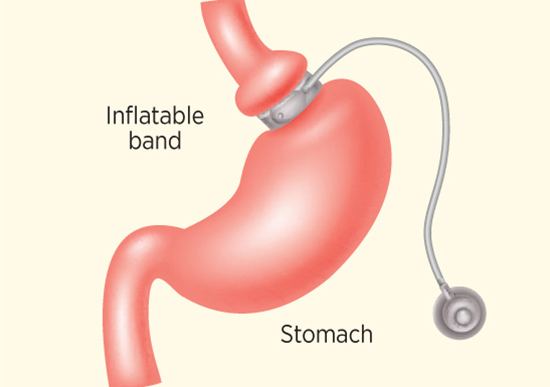Band surgery is a weight loss procedure that has gained popularity in recent years. This article provides a comprehensive guide to band surgery, including its definition, how it works, the preparation process, the surgical procedure itself, and the benefits and risks associated with it.
Understanding Band Surgery
Band surgery, also known as gastric banding, is a surgical procedure designed to assist in weight loss. It involves the placement of an adjustable band around the upper part of the stomach, which creates a small pouch. The purpose of the band is to restrict the amount of food that can pass through the stomach, leading to a feeling of fullness with smaller portions.
- How Band Surgery Works: The adjustable band is placed around the upper part of the stomach, dividing it into two sections. The smaller upper pouch limits the amount of food that can be consumed, while the larger lower section allows for normal digestion. By reducing the capacity of the stomach and slowing down the digestion process, band surgery helps individuals feel satisfied with smaller amounts of food, leading to weight loss.
Preparing for Band Surgery
Before undergoing band surgery, several important steps need to be taken to ensure the procedure’s safety and effectiveness.
- Evaluating Candidacy: Not everyone is a suitable candidate for band surgery. Individuals with a body mass index (BMI) of 40 or higher, or a BMI of 35 or higher with obesity-related health conditions, may be eligible for the procedure. However, each case is evaluated individually, and factors such as overall health, previous weight loss attempts, and commitment to lifestyle changes are considered.
- Consultation and Preoperative Assessments: Once a patient is deemed eligible for band surgery, they will undergo a thorough consultation with a healthcare professional. This consultation includes a review of medical history, physical examination, and discussions about expectations, risks, and benefits. Additional preoperative assessments, such as blood tests and imaging studies, may be ordered to ensure the patient’s readiness for surgery.
The Band Surgery Procedure
Band surgery is typically performed using minimally invasive techniques, which offer several benefits over traditional open surgery.
- Surgical Techniques: The surgery is performed under general anesthesia, and small incisions are made to insert the laparoscopic instruments. The adjustable band is placed around the upper part of the stomach, and the port connected to the band is secured under the skin. The band’s tightness can be adjusted over time, allowing for personalized weight loss goals.
- Recovery and Postoperative Care: After the surgery, patients will spend a short time in the recovery area before being discharged. They will receive detailed instructions regarding diet, physical activity, and follow-up appointments. Regular monitoring and adjustments to the band’s tightness may be necessary to optimize weight loss and address any issues or complications that may arise.
Benefits and Risks of Band Surgery
Band surgery offers several benefits for individuals seeking weight loss; however, it also carries certain risks and potential complications.
- Weight Loss and Health Benefits: Band surgery can lead to significant weight loss, resulting in improved overall health and a reduced risk of obesity-related conditions such as diabetes, high blood pressure, and sleep apnea. The adjustable nature of the band allows for personalized weight loss goals and gradual adjustments as needed.
- Potential Complications and Risks: While band surgery is generally considered safe, there are potential risks involved, such as infection, band slippage, or erosion. Regular follow-up appointments and adherence to postoperative guidelines are essential to minimize these risks and address any complications that may arise.
Conclusion
Band surgery is a surgical procedure that can assist individuals in achieving weight loss by restricting food intake and promoting a feeling of fullness. It is important for individuals considering this procedure to understand the process, prepare accordingly, and be aware of the potential benefits and risks. Consulting with a qualified healthcare professional is crucial to determine if band surgery is the right choice and to receive personalized guidance throughout the weight loss journey.


